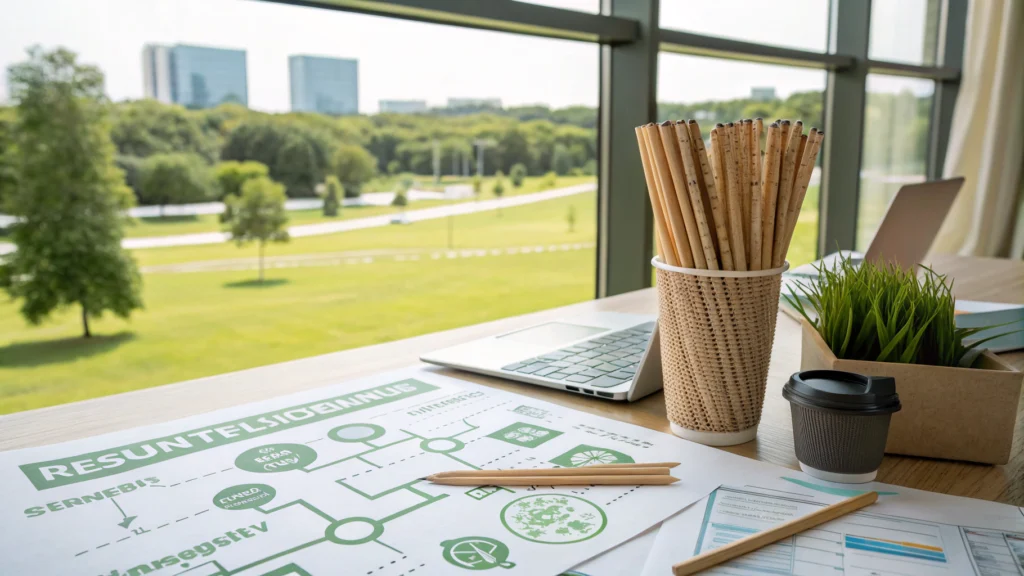
In today’s hyper-competitive global marketplace, brand differentiation has transcended traditional marketing paradigms. Sustainability is no longer a peripheral strategy but a core business imperative that fundamentally reshapes consumer engagement and organizational identity.
The New Brand Ecosystem: Sustainability as Strategic Advantage
Modern brands operate in a complex landscape where environmental consciousness directly correlates with market success. Eco-friendly straws emerge as a powerful microcosm of this transformative approach, representing far more than a simple product choice—they are a strategic communication platform that articulates organizational values with remarkable precision.
Quantifying the Sustainability Imperative
Recent groundbreaking research reveals the profound economic implications of sustainable innovation:
- Consumer Willingness: 73% of global consumers would modify purchasing behaviors to reduce environmental impact
- Market Premium: Sustainable products command an average 5-10% price premium
- Brand Loyalty: 86% of consumers demonstrate increased loyalty to environmentally responsible brands
Strategic Dimensions of Eco-Friendly Product Integration
- Brand Narrative Construction
- Transform product choices into compelling storytelling mechanisms
- Create emotional resonance beyond traditional functional value propositions
- Demonstrate authentic commitment to systemic environmental transformation
- Consumer Psychological Alignment
- Address emerging psychological needs for meaningful consumption
- Bridge the gap between individual consumer values and corporate practices
- Generate trust through transparent, measurable sustainability initiatives
 Case Study: Disruptive Sustainability in Action
Case Study: Disruptive Sustainability in Action
Patagonia’s Radical Approach
When Patagonia launched its “Don’t Buy This Jacket” campaign, they redefined brand communication. By encouraging mindful consumption, they paradoxically strengthened consumer trust and loyalty. Their eco-friendly straw strategy would likely mirror this counterintuitive yet powerful approach—challenging conventional marketing narratives while simultaneously building deep brand affinity.
Implementation Framework: From Concept to Execution
Holistic Sustainability Strategy
- Conduct comprehensive environmental impact assessments
- Develop transparent reporting mechanisms
- Invest in continuous innovation and technology
- Create multi-channel communication strategies
Technological and Material Innovations
Emerging eco-friendly straw technologies demonstrate the potential for transformative product design:
- Biodegradable Materials: Advanced plant-based polymers
- Circular Economy Design: Fully recyclable and compostable solutions
- Minimal Environmental Footprint: Reduced water and carbon consumption during production
Psychological and Economic Implications
Sustainable product choices trigger complex psychological responses:
- Elevated self-perception
- Sense of collective responsibility
- Reduced cognitive dissonance about environmental impact
Future Trajectory: Beyond Incremental Change
The eco-friendly straw represents more than a product—it’s a strategic inflection point signaling organizational adaptability, technological sophistication, and commitment to systemic change. Learn more about organizational adaptability and its impact.
Conclusion
Wholesale eco-friendly straws are not merely a sustainability initiative but a sophisticated brand positioning mechanism. They represent a profound reimagining of corporate responsibility, consumer engagement, and strategic innovation.
By embracing this approach, forward-thinking organizations can:
- Differentiate meaningfully in saturated markets
- Build authentic, trust-based consumer relationships
- Drive systemic environmental transformation
Research References
- McKinsey Sustainability Report (2023)
- Harvard Business Review: Sustainable Innovation Strategies
- Global Consumer Sustainability Index
- World Economic Forum: Future of Consumption
Frequently Asked Questions
What are the psychological benefits of using eco-friendly products?
Using eco-friendly products like biodegradable straws enhances self-perception and fosters a sense of collective responsibility, reducing cognitive dissonance regarding one’s environmental impact.
How do eco-friendly straws contribute to corporate sustainability?
Eco-friendly straws symbolize a company’s commitment to sustainable practices, aiding in brand differentiation and fostering consumer trust, which is crucial for long-term success.







